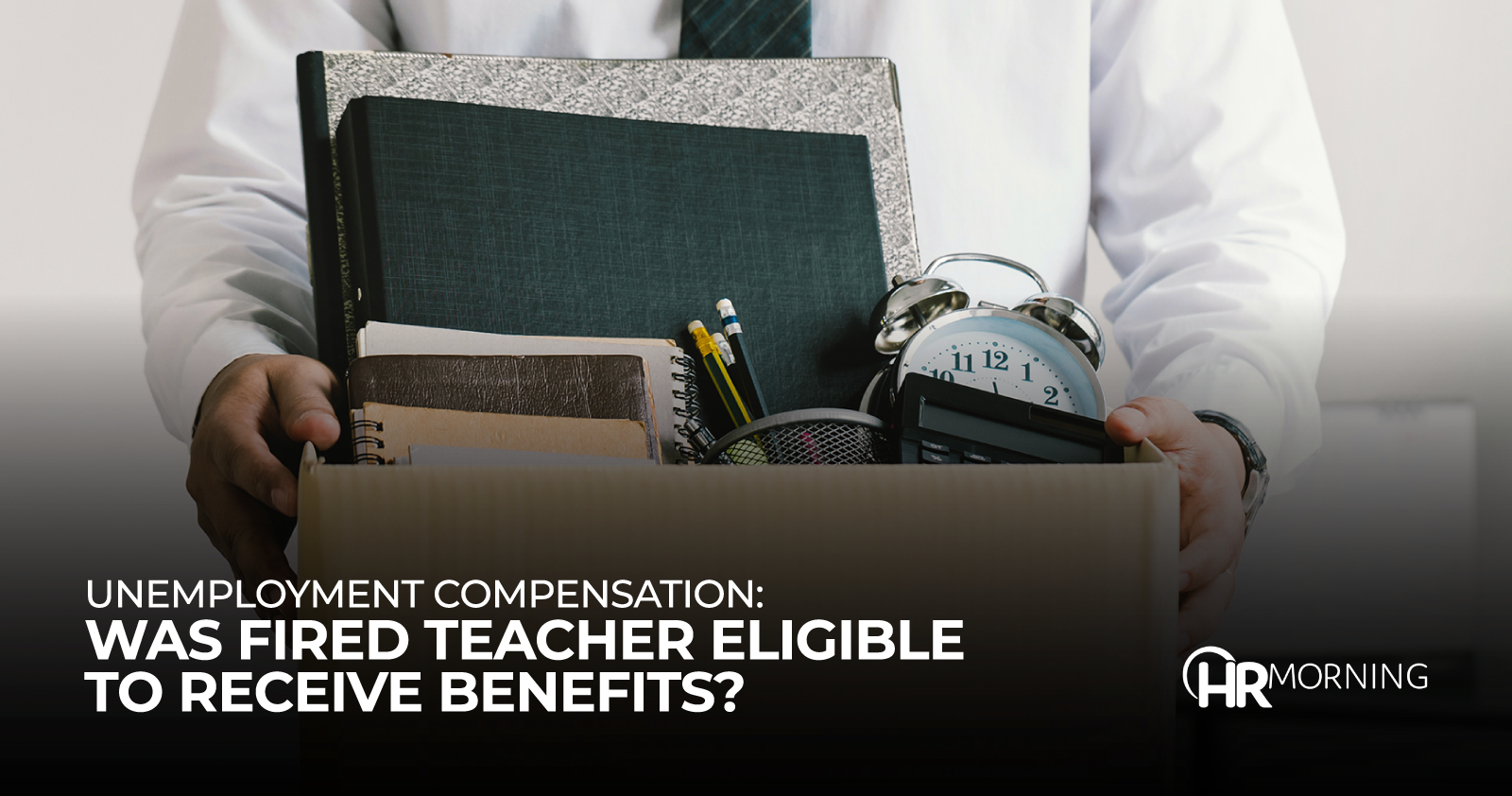Finding a school district failed to prove a fired teacher committed willful misconduct, a Pennsylvania court affirmed a ruling that determined the teacher was not ineligible for unemployment compensation (UC).
The school district in this case had an employee code of conduct that, among other things, prohibited inappropriate comments to colleagues and teachers.
In August 2019, the district hired a full-time teacher and made him aware of its code of conduct.
On Nov. 14, the principal received a complaint that the teacher called students “idiots.” The principal investigated the complaint, and the teacher was fired on Nov. 20.
The former teacher then filed for UC benefits. However, his claim was denied on the basis that he was ineligible for unemployment benefits.
The teacher appealed, and a referee held a hearing on May 12, 2020. The teacher did not attend the hearing. The following day, the referee reversed the determination and found the teacher was eligible for
UC benefits because the district failed to meet its burden of proving the teacher committed “willful misconduct.” The school district then sought judicial review.
Court explains ‘willful misconduct’
Under Pennsylvania law, a former employee is “ineligible for [UC] benefits when his unemployment is due to discharge from work for willful misconduct connected to his work.”
There are four ways an employer can prove a worker committed “willful misconduct.” One is showing a “deliberate violation of the employer’s rules.”
That was the issue here. The district claimed the teacher violated a rule by calling a student an “idiot.”
Moreover, in UC proceedings, it’s well established that “hearsay evidence admitted without objection will be given its natural probative effect and may support a finding of the [UC Board of Review] as long as it is corroborated by other competent evidence in the record.”
Here, the referee admitted into evidence the principal’s testimony concerning her investigation of the teacher’s alleged misconduct. Specifically, the principal testified that a classroom assistant heard a student say the teacher called him an “idiot.”
In the court’s view, this was “essentially hearsay upon hearsay.” The hearsay evidence needed to be corroborated by other evidence – or it would be disregarded.
The district argued the teacher himself “corroborated the principal’s hearsay testimony that [he] engaged in the prohibited conduct” in two ways.
1. District Points to Teacher’s Letter
First, the district pointed to a letter that the teacher wrote to the referee’s office about his absence from the appeals hearing.
In it, the teacher wrote: “This letter is to inform [sic] I cannot make the hearing scheduled for May 12[, 2020,] at 2:00 p[.]m[.] because of my work schedule. All I was looking for [sic] unemployment funds, yes I am guilty of what[ ]ever [the district] is claiming. If you need to speak with me, I am available at [redacted]. Thank you.”
The district claimed the teacher’s letter proved he committed “willful misconduct.”
But the court was not swayed, pointing out that an admission “to whatever is not an admission to calling a student an idiot.” That meant the teacher’s letter was “not competent evidence to corroborate the principal’s testimony,” the court held.
Next, the district argued that the teacher corroborated the principal’s testimony in his UC questionnaire.
2. Teacher’s Answers on Unemployment Compensation Form
Specifically, the questionnaire asked the teacher to “indicate the reason you were given for being discharged or suspended.” The teacher checked the box marked “Rule Violation.” The next question asked what rule the teacher was accused of violating. He responded by writing “inappropriate remarks.”
Again, the court was not convinced, noting that the teacher was “only responding that [the district] accused him of, and discharged him for, violating the rule, not that he committed such violation.”
Without corroborating evidence, the hearsay evidence alone wasn’t enough to prove the teacher committed a deliberate violation of his employer’s rules, the court held.
Because the district failed to prove the teacher committed “willful misconduct,” the court affirmed the UC Board of Review’s finding that he was eligible for UC benefits.
Chester County Charter School v. Unemployment Compensation Review Board, No. 14 C.D. 2021, 2022 WL 4663341 (Pa. Commw. Ct. 10/3/22).


